Healtroxin 100 mcg Information
Healtroxin 100 mcg is a synthetic thyroid hormone that replaces thyroid hormone in the body when natural thyroid hormone synthesis is insufficient to fulfill the body’s demands. Healtroxin 100 mcg is generally used to treat hypothyroidism, or decreased thyroid hormone output. It contains thyroxine, a synthetic thyroid hormone that is chemically identical to the thyroid hormone generated by our gland. Thyroxine aids in the replacement of thyroid hormone and/or the relief of thyroid gland stress.
Hypothyroidism is a chronic disorder in which the thyroid gland (located in the neck behind the throat) is unable to generate adequate thyroid hormone. Thyroid hormones, which govern the body’s metabolism, are made up of tri-iodothyronine (T3) and thyroxine (T4). The body’s metabolism slows down and the person feels less energy when they have an underactive thyroid. Other signs and symptoms include fatigue, constipation, weight gain, feeling chilly even in hot weather, dry skin, too much or too little menses (in women), and even a depressed mood. Hypothyroidism must be treated in order for the body’s metabolism to return to normal (basal metabolic rate).
If you have any of the aforementioned symptoms, your doctor will recommend a blood test called a “thyroid function test,” which examines three thyroid hormones: TSH, T3, and T4. TSH levels that are too high and T3/T4 levels that are too low suggest that your thyroid gland isn’t working properly. Your doctor will change your Healtroxin 100 mcg dose based on your body weight and thyroid function test results. It might take a few weeks for the drug to have full effect. It’s a good idea to get your thyroid function checked on a regular basis to make sure you’re getting the right dose of Healtroxin 100 mcg.
Healtroxin 100 mcg should be taken as directed by your doctor. Overdosage of Healtroxin 100 mcg can induce headaches, anxiety, restlessness, irritability, diarrhea, muscular spasm, weight loss, feeling hot even in cold circumstances, menstruation irregularities (in women), and skin rash. Do not take a double dosage if you miss a dose since it may cause significant negative effects.
For your bone health, your doctor may prescribe calcium or vitamin D supplements in addition to Healtroxin 100 mcg. Healtroxin 100 mcg should not be used for weight loss on its own. People with diabetes who use Healtroxin 100 mcg may have changes in blood glucose control, which may need the use of more antidiabetic drugs or insulin. As a result, patients with diabetes should seek medical advice and closely monitor their blood glucose levels after beginning, altering, or ending thyroid hormone therapy.
Healtroxin 100 mcg uses include: Hypothyroidism is a condition in which the thyroid gland is underactive (underactive thyroid)
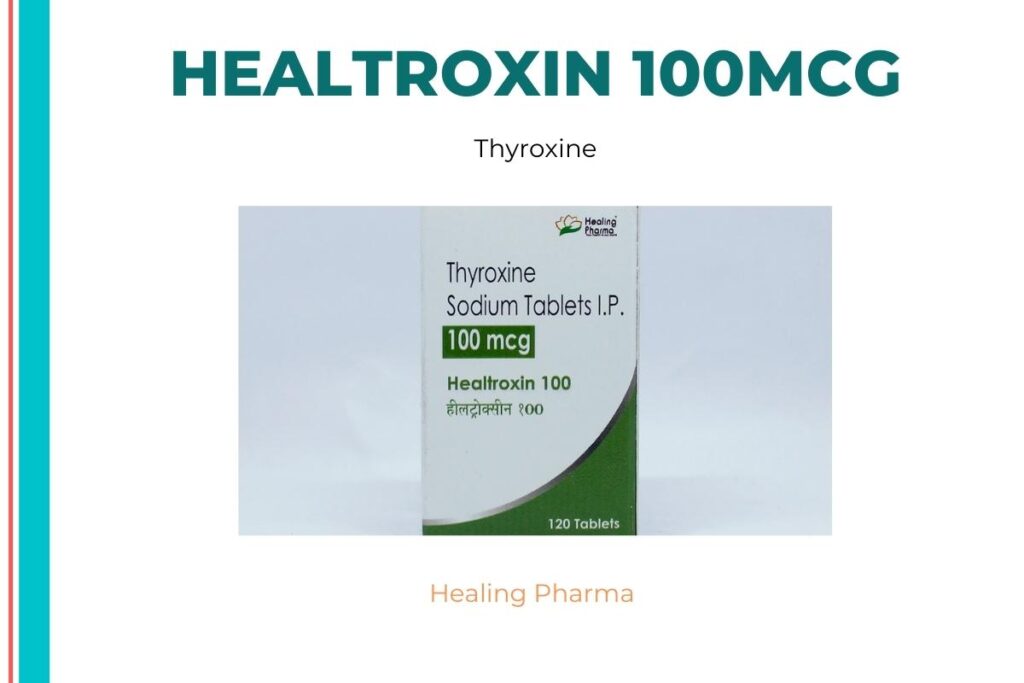
Medicinal Advantages
Healtroxin 100 mcg regulates the thyroid gland’s activity (hypothyroidism) and alleviates symptoms of low thyroid hormones such as unexplained weight gain, weariness, sensitivity to the cold, and others. As a result, it aids in the replacement of the body’s own natural thyroid hormone, which is necessary for both mental and physical wellness. Healtroxin 100 mcg, on the other hand, should not be used to treat obesity or weight reduction.
Use Instructions
This drug should be taken once a day, on an empty stomach, half an hour before breakfast, with a full glass of water. However, if you have any doubts about using Healtroxin 100 mcg, you should visit a doctor.
Storage
Store in a cool, dry location away from direct sunlight.
Healtroxin 100 mcg Side Effects
Healtroxin 100 mcg, like other drugs, can produce adverse effects, though not everyone experiences them. Incorrect dose or irregular ingestion are the most common causes of side effects. Palpitations, muscular spasms, headaches, anxiety, irritability, insomnia, tremors, muscle weakness, increased hunger, weight loss, diarrhea, heat intolerance, menstruation abnormalities, and skin rash are all possible side effects. These unpleasant side effects are seldom noticed when taken in the correct dosage as suggested by your doctor. However, if these symptoms continue to concern you, consult your doctor.
Drug Recommendations
Soybean flour, cottonseed meal, cabbage, cauliflower, walnuts, dietary fiber, calcium, and calcium-fortified beverages, among other foods, may interfere with Thyroxine’s function. As a result, if at all possible, avoid eating these meals within several hours of dosage. Healtroxin 100 mcg should not be given to people who have had an acute myocardial infarction or who have excessive blood pressure. Before using Thyroxine, it is essential that you have your heart function closely monitored by a doctor. Long-term usage of Healtroxin 100 mcg can harm your bones, causing osteoporosis and an increased risk of bone fractures. As a result, your doctor may prescribe calcium or vitamin D supplements in addition to Healtroxin 100 mcg to help you maintain your bone health. Healtroxin 100 mcg should not be utilized just for weight reduction purposes. People with diabetes who use Healtroxin 100 mcg may experience changes in blood glucose control, necessitating the use of more antidiabetic drugs or insulin. Healtroxin 100 mcg is not indicated for weight loss or the treatment of thyroid cancer.
Interactions Between Drugs
Healtroxin 100 mcg interacts with medications such as appetite suppressants (phentermine), acid reflux medications (esomeprazole), anti-diabetic medications (metformin), calcium/vitamin D, and neuro-related medications (amphetamine/dextroamphetamine). So, if you’re on any of these medications, talk to your doctor before taking Thyroxine.
Drug-Food Interactions: Tell your doctor if you’re taking any homoeopathic, ayurveda, Unani, or over-the-counter medications. These drugs may interact with Healtroxin 100 mcg and impair its effectiveness. Foods including soybean flour, cottonseed meal, walnuts, dietary fiber, calcium, and calcium-fortified beverages may further reduce Healtroxin 100 mcg absorption. So, if at all possible, stay away from these meals.
Thyroid hormones increase the workload of the heart and the body’s oxygen consumption. Drug-Disease Interaction: Thyroid hormones increase the workload of the heart and the body’s oxygen consumption. As a result, in heart patients (cardiovascular illnesses) such as high blood pressure, chest discomfort (angina), and coronary artery disease, Healtroxin 100 mcg should be used with caution. Your heart function should be checked on a regular basis. If chest discomfort happens regularly, contact your doctor so that the dose can be reduced.
Cautionary Note
ALCOHOL
To minimize undesirable side effects, you should avoid drinking alcohol while taking Thyroxine.
PREGNANCY
Only take Thyroxine if your doctor has recommended it. Due to increasing blood levels of oestrogen (female sex hormone), the requirement for Thyroxine may increase during pregnancy; therefore, thyroid function should be monitored periodically both during and after pregnancy. Your doctor can modify the thyroid hormone dose in this scenario.
BREAST FEEDING
Even when using large doses of thyroxine, the quantity of thyroxine that passes into breast milk during breastfeeding is very minimal, making it completely safe. However, if you have any doubts, seek medical advice.
DRIVING
The hormone thyroxine has no effect on your ability to drive.
LIVER
Because there have been no known interactions with thyroxine, talk to your doctor if you have any problems.
KIDNEY
Because thyroxine has no effect on the kidneys, it can be taken in the specified amount. Patients with an adrenal gland problem or consequence should visit a doctor before taking it.
No habit formation
Advice on Diet and Lifestyle
Reduce your symptoms and boost your thyroid function by eating the correct nutrition and taking your prescription medications on a regular basis. Hypothyroidism patients benefit from iodine, zinc, and selenium. Iodine and selenium supplements, on the other hand, should only be used if your doctor recommends it.
In hypothyroidism, our bodies often lose calcium (hypocalcemia) and Vitamin D. People with hypothyroidism should choose calcium-rich diets in this situation.
People with hypothyroidism normally have a slower metabolism, so adding additional protein to your diet may help you speed up.
Yoga and aerobics routines might assist to enhance metabolism on a daily basis.
People suffering from hypothyroidism should consume more vegetables, fruits, and lean proteins. These low-calorie meals may help you avoid gaining weight.
Goitrogens (agents that interfere with the thyroid gland’s normal function) are found in soy foods (tofu), cabbage, broccoli, kale, cauliflower, spinach, sweet potatoes, cassava, peaches, strawberries, millet, pine nuts, peanuts, and other foods.
Recommendations
Excessive doses may result in significant or even life-threatening toxicity symptoms. As a result, if you forget to take Thyroxine at any time, take it as soon as you recall. If your next dosage is approaching, you should omit the missed dose and continue with your usual regimen as directed by your doctor.
Thyroxine should not be used to treat obesity or to help people lose weight.
Thyroxine should not be used without seeing a doctor if you have an adrenaline or pituitary gland problem, heart disease, diabetes, or coagulation disorders. Your dose may need to be changed.
Patients with diabetes who are using Thyroxine should talk to their doctor before starting this medication since it can decrease glycemic control and require more anti-diabetic medications or insulin treatment.
Thyroxine supplementation may reduce bone mineral density, especially in postmenopausal women. As a result, talk to your doctor about the lowest dose feasible for your bone health.
Please inform your doctor if you are taking Thyroxine before any surgery.
Thyroid function tests are normally performed on an empty stomach following a fast of six to eight hours.
Additional Information: This item is non-refundable.
Glossary of Diseases and Conditions
Hypothyroidism, also known as underactive thyroid, is a disorder in which the thyroid gland does not produce enough thyroid hormones to fulfill your body’s requirements. Our body’s functioning and metabolism slow down when thyroid hormone levels are low. Tiredness, increased sensitivity to cold, constipation, dry skin, unexplained weight gain, swollen face, hoarseness of voice, and muscular weakness are all symptoms of hypothyroidism. Some hypothyroidism patients may experience calcium and vitamin D deficiency.
FAQs
Your thyroid hormone levels may fluctuate based on your age, gender, and medical condition (like pregnancy, chronic condition or complication). TSH levels in a 30-year-old woman may be approximately 4.2 mU/L, whereas in a 90-year-old male, they may be as high as 8.9 mU/L. Aside from that, your stress level, food, drugs, and menstrual cycle can all affect your thyroid hormone levels. The following is a general range to use as a guide: -A normal TSH range is 0.4 to 4.0 mIU/L. T3 levels in the normal range should be between 0.2 and 0.5 ng/dl. -A normal T4 level should be between 0.8 and 1.8 ng/dl.
If you notice signs like abrupt weight gain, exhaustion, increased sensitivity to cold, dry skin, constipation, bloated face, muscular weakness, anxiety, or hoarseness in your voice, you should seek medical attention. For continued therapy, you should see an Endocrinologist/Physician.
Food should not be consumed when taking thyroxine. Please take it on an empty stomach at least half an hour before your morning tea/coffee/breakfast.
Every month, you should have a thyroid profile test that includes T3, T4, and TSH levels. After taking Thyroxine as suggested by your doctor on a regular basis, you will notice a fall in your TSH level.
Thyroxine is exclusively used to treat hypothyroidism, not to lose weight.
If you notice signs like abrupt weight gain, exhaustion, increased sensitivity to cold, dry skin, constipation, bloated face, muscular weakness, anxiety, or hoarseness in your voice, you should seek medical attention. For continued therapy, you should see an Endocrinologist/Physician.
Limit your daily salt consumption to less than 2300 mg. When you eat too much salt, your blood pressure rises, especially if you have an underactive thyroid.
An Endocrinologist may advise a pregnant lady to take a high dose of Thyroxine to satisfy the high-level thyroid hormone demand based on the thyroid profile test. Treatment for an underactive thyroid is essential during pregnancy, since low thyroid hormone levels in the mother can affect both the mother and the fetus.
If you miss a dosage of Thyroxine, do not take a duplicate dose. If you take too much Thyroxine, you may have adverse effects such as anxiety, sleeplessness, moderate temperature increase, blood pressure elevation, or loose stools. In this instance, call your doctor right away and only take it if your doctor has given you permission.
Hypothyroidism and other endocrine problems are frequently lifelong. Stopping the drug on your own might induce an imbalance in the body, which can lead to major metabolic problems.


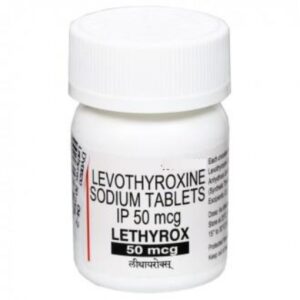
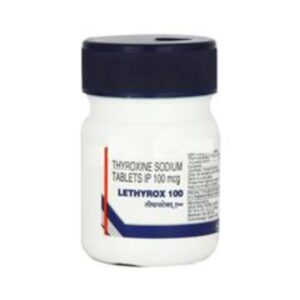

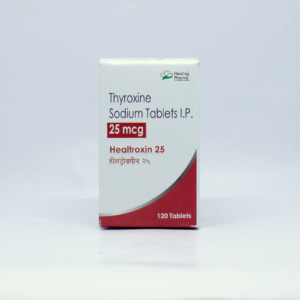
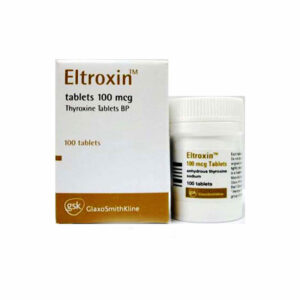
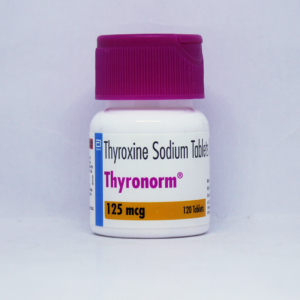
Leave a Reply
You must be logged in to post a comment.